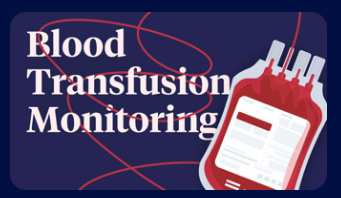Year: 2022
-
Brazilian ANVISA authorizes exceptional drug and vaccine use against Monkeypox by the Ministry of Health
The Ministry of Health (MH) sent Brazilian National Health Surveillance Agency (Anvisa) a request for exemption from the sanitary registration, on an exceptional and temporary basis, of the drug Tecovirimat concentration 200 mg, capsule, oral use, for the treatment of Monkeypox, due to the public health emergency of international importance. The drug will be acquired…
-
FDA class 1 recall of medical device: the most serious type of recall
Medtronic is recalling Cobalt/Crome Implantable Cardioverter Defibrillators (ICDs) and Resynchronization Therapy Defibrillators (CRT-Ds) after receiving reports of devices with a short circuit protection (SCP) alert resulting in reduced-energy electric shock delivery, instead of delivering a second phase of high voltage therapy. A reduced-energy electrical shock may fail to correct an irregular heartbeat (arrythmia) or may…
-
Decommission of eSUSAR by MHRA
The MHRA is retiring the eSUSAR website in favour for Individual Case Safety Reports (ICSR) Submissions, providing users “a more robust, stringent, and transparent way of expediting suspected unexpected serious adverse drug reactions (SUSARs) from Clinical Trials of Investigational Medicinal Products” (IMPs). The eSUSAR website used for the submission of SUSAR reports to the MHRA…
-
Health Canada amendments to Labelling of natural health products (NHPs)
Health Canada has implemented amendments to labelling requirements under the Natural Health Products Regulations (NHPR) as a result of challenges identified in recent years surrounding the widespread use of Natural Health Products (NHPs) by Canadians. The amendments imposing revised labelling standards are subject to a three year transition period and will come into force on…
-
EMA recommendation on Restricted use of cancer medicine Rubraca
On 22 Jul 2022, the European Medicines Agency (EMA) has recommended that Rubraca (rucaparib camsylate) should no longer be used as third-line treatment for cancer, as a study that was designed to confirm the benefit of Rubraca failed to do so, and showed that treatment may be associated with a higher risk of death. The…
-
MHRA Update – Risk of Topiramate (Topamax) in children with prenatal exposure
On 21 July 2022, Medicines and Health care products Regulatory Agency (MHRA) released a drug safety update stating, initiation of new safety review into topiramate because of increased risk of neurodevelopmental disabilities in children whose mothers took topiramate during pregnancy. The new safety review was triggered by a large observational study reporting that prenatal exposure to…
-
NPRA update on Risks associated with Systemic Corticosteroids
National Pharmaceutical Regulatory Agency (NPRA) of Malaysia release a notification on Risk of Pheochromocytoma associated with Systemic Corticosteroids. Corticosteroids are anti-inflammatory drugs used for asthma and arthritis. Betamethasone, dexamethasone, prednisolone, methylprednisolone, triamcinolone, are types of systemic corticosteroids that are registered and currently in use in Malaysia. Pheochromocytoma crisis is actually an emergency situation,where patients have…
-
HPRA update on safety and use of Melanotan
Health products regulatory authority (HPRA) released an advisory regarding risk of using Melanotan. “Do not purchase or use melanotan 2 because there is no such authorised medicine to treat any condition,that includes the purpose of changing skin color” says HPRA. As it cannot be classified as cosmetics, not even an authorised medicine, there is no…
-
2. Hemovigilance – Adverse event terms and definitions
Haemovigilance: A set of surveillance procedures covering the whole transfusion chain (from the collection of blood and its components to the follow-up of recipients), intended to collect and assess information on unexpected or undesirable effects resulting from the use of labile blood products, and to prevent their occurrence or recurrence Adverse event: An unintended and…
-

Introduction to Hemovigilance
The transfusion of blood and blood products is a life-saving intervention. However, there are risks of adverse events associated with the donation of blood and its components, and with the transfusion of blood and blood products to patients. Adverse events include all reactions, incidents, near misses, errors, deviations from standard operating procedures and accidents associated…